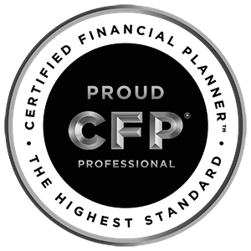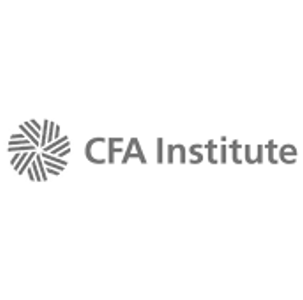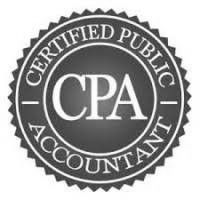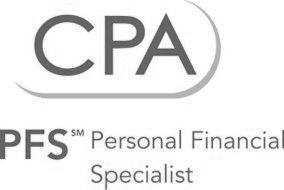You Deserve
Read our Blog
Updates from Our Desk to Yours

Below is a summary of the second-quarter 2025 market performance and economic commentary. The full market performance report (PDF) , including commentary and charts, can be found here . Market Performance 📈The US equity market posted positive returns for the quarter and underperformed both non-US developed and emerging markets. Value underperformed growth and small caps underperformed large caps . 📉US REIT ( real estate investment trusts) indices underperformed equity market indices, but International REITs outperformed. 📈 Within the US Treasury market, long term interest rates generally increased and short term rates decreased during the quarter. The yield on the 10-Year US Treasury Note increased 0.01% to 4.24%. 📉The Bloomberg Commodity Total Return Index returned -3.08% for the second quarter of 2025.

One of the most common opportunities we uncover at Highland Investment Advisors when working with new families is that they’re holding too much cash and earning too little on it. Fortunately, that’s a good problem to have and an easy one to fix. Clients often ask us questions like, “My emergency savings is earning X% at the bank, and I was offered a CD (or money market) at Y%. Is that good?” Since our team actively monitors the fixed income landscape, we’re well equipped to answer that and offer alternatives. Before we dive in, let’s acknowledge an obvious question: Is this the right amount of cash to be holding in the first place? Could some of it be working harder in a longer-term portfolio? That’s absolutely a conversation worth having. But for the purposes of this article, we’ll set that aside and focus on optimizing the cash you do plan to keep liquid. This article outlines the main vehicles available to help you earn more on your excess cash. Checking Accounts Frequently, cash accumulates in a family’s primary checking account at the bank. Unfortunately, most checking accounts do not pay interest, or if they do, they may come with other fees or minimum balance requirements. This is a significant source of profit for banks. Savings Accounts Sometimes families transfer cash to a savings account, which typically does not offer check-writing or online payments. At the mega-banks, interest is offered, but usually at a negligible rate (think fractions of a percent, like 0.01%). Rates may be slightly higher if the account holds a larger balance. Smaller banks or credit unions often offer better rates. Savings accounts are generally FDIC-insured up to $250,000, providing protection against bank failure. Bank Money Market The next step up the ladder is money market accounts. Most banks offer a money market account that can be linked to a family’s checking and savings accounts, simplifying transfers. Again, interest rates on bank-sponsored money markets tend to be low, though smaller institutions frequently offer higher yields than the mega-banks. Most money market deposit accounts are FDIC-insured. Certificates of Deposit (“CDs”) In exchange for locking up cash for a few months to several years, certificates of deposit often offer a higher interest rate than the bank’s money market account. CDs pay a fixed interest rate for the term, which protects investors if rates fall—but offers no benefit if rates rise. While typically more competitive than money markets, CD rates can vary based on the issuing bank’s credit quality. Most CDs are FDIC-insured. If the money is withdrawn before maturity, early withdrawal penalties will reduce the overall return. Certificates of Deposit Ladders One technique to manage the illiquidity of a CD is to create a ladder: investing in multiple CDs with staggered maturities. For example, one might mature in three months, another in six months, then nine months, and finally one year. This increases liquidity, but it also means the family must reinvest maturing CDs on a rolling basis. High Yield Savings Accounts Some families opt for high-yield savings accounts offered by online-only banks. These banks have lower overhead and can therefore offer higher interest rates. Many of these accounts have no monthly fees, and reasonable minimums. However, the absence of physical locations can make some transactions less convenient. Like traditional savings accounts, the interest rate will fluctuate with market conditions. Riskier banks may offer higher yields, so it’s important to verify FDIC insurance. Brokerage Money Markets Funds Brokerage firms offer money market mutual funds within both taxable and retirement accounts. These funds invest in highly liquid, short-term debt securities. Retail investors are typically offered “stable NAV” funds, which aim to maintain a $1.00 per share price. Yields fluctuate daily based on market conditions but are often higher than those from bank savings accounts. Interest accrues daily and is usually paid monthly in the form of additional shares. There are three main types of brokerage money market funds, each with different risk and tax considerations: Government Money Market Funds These are considered the safest, investing only in U.S. government-related securities such as Treasury bills, agency securities (like Fannie Mae or Freddie Mac), or repurchase agreements backed by government assets. Interest earned from Treasuries is exempt from state income tax. Prime Money Market Funds These funds carry slightly more risk by investing in short-term corporate debt, which is inherently riskier than government securities. In return, prime funds may offer slightly higher yields. Municipal Money Market Funds These funds invest primarily in short-term municipal securities issued by state and local governments. The interest is typically exempt from federal income tax, making them potentially attractive for families in higher tax brackets. With interest rates having risen meaningfully over the past few years, there’s no reason to let your cash sit idle. Whether you're holding funds for emergencies, upcoming expenses, or just peace of mind, there are smarter ways to earn more while keeping your money safe and accessible. If you'd like a second opinion on your current cash, or want help navigating the many options available, reach out to us. All content is for information purposes only. It is not intended to provide any tax or legal advice or provide the basis for any financial decisions. Nor is it intended to be a projection of current or future performance or indication or future results. Opinions expressed herein are solely those of Highland Investment Advisors, LLC and our editorial staff. The information contained in this material has been derived from sources believed to be reliable but is not guaranteed as to accuracy and completeness and does not purport to be a complete analysis of the materials discussed. All information and ideas should be discussed in detail with your individual adviser prior to implementation. Advisory services are offered by Highland Investment Advisors, LLC a SEC Investment Advisor.







